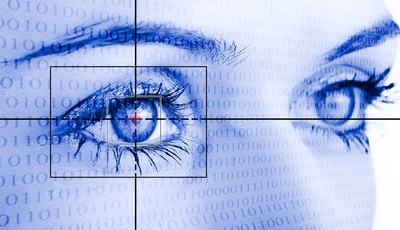As we get closer to the release of iOS 7 rumors abound around the exact feature list. The latest is that iOS 7 will have greatly improved facial recognition features including the ability to detect people blinking or smiling in a picture.
Whilst this is great feature candy, I’m skeptical as to how useful this feature is as a camera enhancement. I have a feeling that the majority of camera users will probably be of the opinion that they could…I don’t know…like actually look to see if people are smiling? The blink feature that pauses shooting a picture until after a blink might be more useful but then that might cause you to miss certain “action shots”. Levity aside though it’s not these aspects of facial recognition in iOS 7 that interest me.
We’re all spending more and more time online and it’s not hard to find out a great deal about someone from running a simple Google search. Now imagine an application that takes a simple scan of you from an iPhone and then correlates that scan against a google image search to start with. Hit enough similar images on the internet and you have a selection of sites that relate to the person you’ve just scanned. Now take a look at those pages and see how many times the same name appears. You now have a name. From this information you can determine phone number, address, occupation, friends, interests, all sorts of information.
For the moment it’s all probabilities. The pictures you correlate will give you a probability that you have the right person and a probability that their name will be correct. After you have a name the probability that the other information will be accurate is far higher. How long before you go to a business meeting and from a simple scan the person opposite you will know more about you than they’d glean from 20 business meetings? Interesting and entirely possible future tech even if it does sound like something from a dystopian sci-fi movie. How Google Glass will use similar tech becomes even more interesting.
For the security conscious there are some upsides to this technology. It would be nice if my iPhone could recognise me and unlock when I pick it up. Combined with finger print recognition, another supposed feature of iOS 7, this could make my phone very secure.
I’m looking forward to seeing how Apple implements this feature and what sort of Apps spring up around it.



